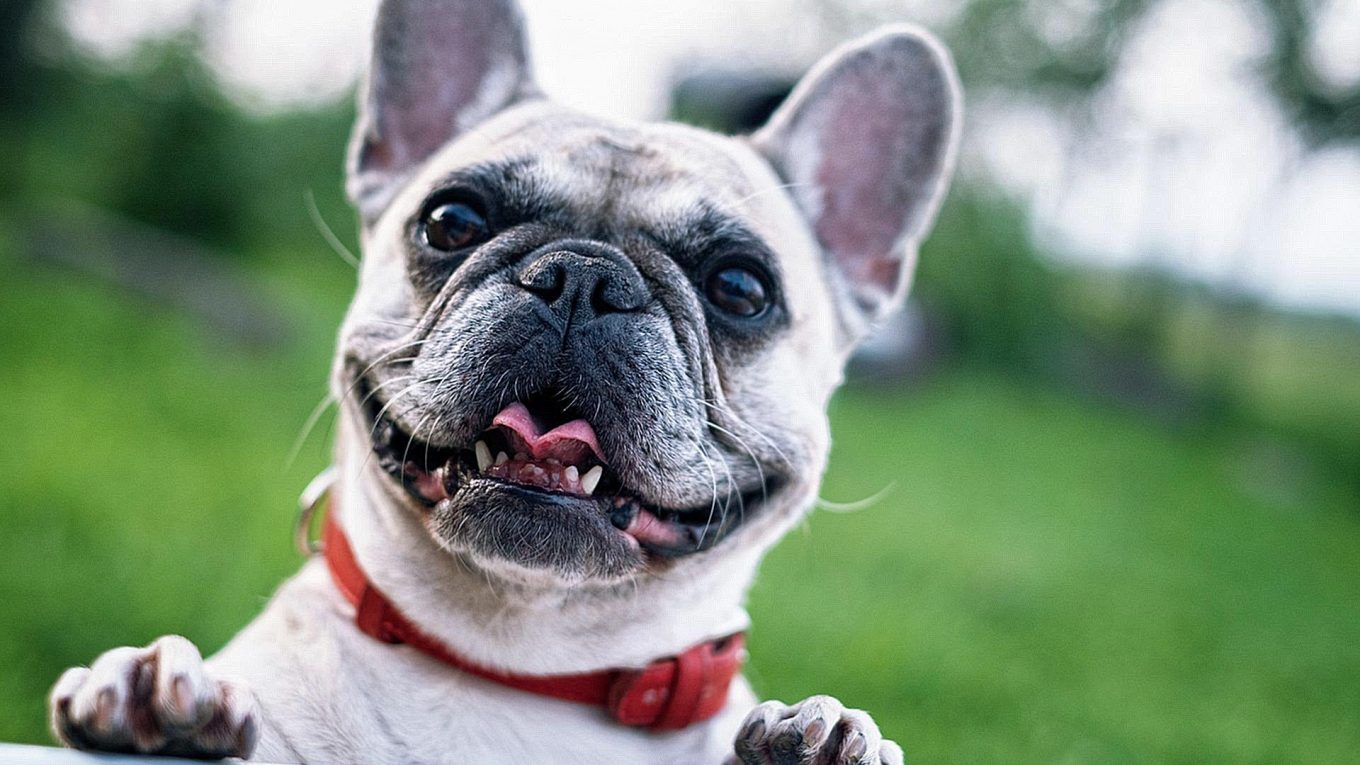Can You Breed A Frenchie With A Bulldog?
Ever wondered what would happen if you mixed a French Bulldog with an English Bulldog? Well, get ready for a wild ride because breeding these two popular breeds can result in a charming and one-of-a-kind hybrid canine, affectionately known as the “Bulldog Frenchie.” But before you dive headfirst into this crossbreeding endeavor, let’s explore the advantages, disadvantages, and important things to consider when contemplating this fascinating pairing.
Can you breed a Frenchie with a bulldog?
Contents
- 1 Can you breed a Frenchie with a bulldog?
- 2 Assessing Health Risks When Breeding a Frenchie with a Bulldog
- 3 Examining the Temperament of French Bulldogs and Bulldogs
- 4 Considering the Purpose Behind Breeding a Frenchie with a Bulldog
- 5 Preparing for the Challenges of Breeding Dogs
- 6 Ensuring Responsible Breeding Practices for a Frenchie and Bulldog
- 7 The Benefits of Cross-Breeding Between French Bulldogs and Bulldogs
- 8 Avoiding Potential Health Problems When Breeding a Frenchie with a Bulldog
- 9 Evaluating Temperament in Offspring from a Frenchie-Bulldog Mix
- 10 Conclusion
Advantages of Frenchie and Bulldog Crossbreeding:
One of the major perks of combining a Frenchie with a Bulldog is the fusion of their lovable personalities. Both breeds are famous for their friendly and affectionate nature, making them fantastic companions for families and individuals alike. With their loyalty and playful spirit, these pups will steal your heart in no time.
But it’s not just about personality – the physical attributes that come from mixing these two breeds can create an absolutely adorable outcome. Picture a squish-faced pup with a stocky frame that turns heads wherever they go. The English Bulldog’s muscular build combined with the Frenchie’s compact agility results in a visually striking dog that is sure to make people stop and stare.
Considerations and Disadvantages:
While owning a Bulldog Frenchie might sound like a dream come true, it’s crucial to consider potential downsides as well. One concern is the health issues that both parent breeds are prone to. English Bulldogs often struggle with respiratory problems, especially in warmer climates, while Frenchies face similar risks due to their brachycephalic nature. These health concerns could potentially be inherited by the offspring, which means extra care and regular vet visits will be necessary.
Another aspect to keep in mind is genetic diversity. Crossbreeding can reduce the risk of certain hereditary issues found in purebred lines. However, it’s essential to ensure that both parent dogs have a good genetic background and have been thoroughly screened for any potential health problems. This way, you can ensure the best physical and mental well-being for the puppies.
Breeding a French Bulldog with an English Bulldog opens up a world of possibilities – creating a loving, playful, and visually striking hybrid dog. But remember, this venture should be approached responsibly.
Potential breeders must prioritize the health considerations and genetic diversity of the parent dogs to ensure the best outcome for these
Assessing Health Risks When Breeding a Frenchie with a Bulldog
Breeding a Frenchie with a Bulldog can be an exciting prospect, but it’s important to be aware of the potential health risks involved. In this comprehensive guide, we’ll delve into the various health concerns associated with this breeding combination, providing you with the knowledge you need to make an informed decision.
Brachycephalic Airway Syndrome (BAS):
Both French Bulldogs and Bulldogs are prone to breathing difficulties due to their flat faces. Breeding these two breeds together can increase the risk of Brachycephalic Airway Syndrome in their offspring. This condition can lead to respiratory distress, snoring, and even life-threatening complications.
Hip Dysplasia:
Hip dysplasia is a common issue in both French Bulldogs and Bulldogs. When breeding these two breeds together, there is an increased likelihood of passing on the genetic predisposition for this condition. Hip dysplasia can cause pain, lameness, and arthritis in affected dogs.
Skin Allergies:
French Bulldogs and Bulldogs are known to have sensitive skin and are prone to allergies. Breeding these two breeds together may increase the risk of skin allergies in their puppies. These allergies can manifest as itching, redness, hair loss, and skin infections.
Eye Problems:
Both French Bulldogs and Bulldogs are susceptible to various eye problems. Breeding these two breeds together can increase the chances of their puppies inheriting conditions like cherry eye or entropion, which may require surgical intervention to correct.

Heat Sensitivity:
As brachycephalic breeds, both French Bulldogs and Bulldogs have difficulty regulating their body temperature and are more prone to overheating. Breeding these two breeds together can exacerbate this heat sensitivity in their offspring, putting them at a higher risk of heatstroke and heat-related complications.
Examining the Temperament of French Bulldogs and Bulldogs
French Bulldogs and Bulldogs are two breeds with distinct temperaments, and crossbreeding them can result in puppies with a unique mix of traits. While this can be exciting, it’s essential to consider the potential temperament challenges that may arise.
- Conflicting Temperament Traits: Both French Bulldogs and Bulldogs have their own set of temperament traits. Frenchies are affectionate, sociable, and playful, while Bulldogs are gentle, calm, and docile. Crossbreeding these breeds can result in puppies with a combination of these traits, making it challenging to predict their exact temperament. Some puppies may be more energetic and playful, while others may be more laid-back and calm.
- Health Issues: French Bulldogs and Bulldogs are both prone to certain health conditions. Breathing difficulties, such as Brachycephalic Airway Syndrome, and joint problems like Hip Dysplasia are common in both breeds. Crossbreeding them may increase the risk of passing on these health issues to the offspring. It’s crucial for breeders to carefully select parent dogs with desirable temperaments and ensure they undergo proper health screenings before breeding.
To mitigate these challenges, prospective owners should be prepared for potential temperament variations and health issues. Early socialization and training can help mold the temperament of the puppies and ensure they grow up to be well-adjusted dogs. Additionally, responsible breeding practices that prioritize the health and well-being of the parent dogs can help reduce the risk of passing on genetic issues.
Considering the Purpose Behind Breeding a Frenchie with a Bulldog
If you’re a proud owner of a French Bulldog and have ever wondered what it would be like to have a mix between your Frenchie and a Bulldog, you’re not alone. Breeding a Frenchie with a Bulldog can result in an intriguing combination of traits, making for an incredibly unique and lovable companion. But before you dive headfirst into this crossbreeding adventure, let’s explore the purpose behind this mix and what you can expect from it.
The Best of Both Worlds
One of the main reasons behind breeding a Frenchie with a Bulldog is to create a dog that embodies the best qualities of both breeds. French Bulldogs are known for their friendly and affectionate nature, while Bulldogs are famous for their loyalty and protective instincts. By combining these characteristics, breeders hope to produce a dog that is both loving and fiercely loyal, making for an ideal companion.
Healthier and Heartier Dogs
French Bulldogs, unfortunately, are prone to several health issues due to their brachycephalic (short-nosed) structure. Bulldogs, on the other hand, have their own set of health concerns, such as hip dysplasia and respiratory problems. By crossing these two breeds, breeders aim to reduce the risk of certain genetic health issues and create a more robust and resilient dog. However, it’s important to note that responsible breeders prioritize health screenings on parent dogs to ensure they are not passing on any genetic problems to their offspring.
Specialized Working or Service Dogs
In some cases, breeders may have specific goals in mind when breeding a Frenchie with a Bulldog. The combination of the French Bulldog’s intelligence and the Bulldog’s strength and determination can result in a versatile canine capable of excelling in various tasks or roles. Whether it’s working as a therapy dog, an emotional support animal, or even a search and rescue dog, these crossbreeds can bring their unique blend of traits to any job.
Remember, responsible breeding practices are crucial when considering a Frenchie and Bulldog mix. Breeders should prioritize the health and well-being of the dogs involved, conducting health screenings, providing proper care and socialization to the puppies, and ensuring they are placed in suitable homes.
So, if you’re considering breeding your Frenchie with a Bulldog or thinking about bringing home a Frenchie-Bulldog mix, make sure you understand the purpose behind this crossbreed. By doing so, you’ll be better prepared for the unique traits and potential challenges that come with these adorable and one-of-a-kind companions.
Preparing for the Challenges of Breeding Dogs
If you’re considering breeding your adorable Frenchie with a Bulldog, it’s important to be aware of the challenges that may arise. Don’t worry though, we’ve got your back. In this section, we’ll explore the potential hurdles you might encounter and how to overcome them. Let’s dive in.
Health Risks: Double Trouble?
French Bulldogs and Bulldogs are both prone to certain health issues. These include brachycephalic respiratory syndrome and hip dysplasia. Breeding these two breeds together can increase the risk of passing on these genetic conditions to their pups. To combat this, do your homework. Research and understand the health concerns associated with both breeds. Make sure you choose healthy parents with no underlying health issues to minimize the risk.
Temperament Tango: Mixing Personalities
Frenchies are known for their lively and affectionate nature, while Bulldogs tend to be more laid-back and relaxed. Breeding these two breeds together can result in a mix of temperamental traits. This may not necessarily be a bad thing, but it’s crucial to assess the temperaments of both dogs. Consider whether a crossbreed between them would result in compatible offspring that will fit well into your family.
Genetic Jigsaw: The Puzzle of Inheritance
Understanding genetics is crucial when breeding different dog breeds. You need to have a solid grasp of how certain traits are inherited and passed on to the puppies. Dominant and recessive genes, coat colors, and patterns – it’s like solving a puzzle. Having a good knowledge of genetics will help you make informed decisions about which traits you want to emphasize or avoid in your breeding program.
Pamper Your Parents: The Perfect Environment
Creating a suitable environment for both the dam and sire is essential for successful breeding. The female dog should be in optimal health before breeding, ensuring a smooth pregnancy and delivery. Don’t forget to provide proper nutrition, regular exercise, and routine veterinary check-ups for the mom-to-be. And let’s not forget about the dad. He should also be in tip-top shape, free from any genetic or hereditary issues that could be passed on to the little ones.
Responsibilities Galore: Puppies, Homes, and Support
Breeding dogs is not for the faint of heart. Once those adorable furballs arrive, you’ll have a lot on your plate. Be prepared for caring for the puppies, finding them suitable homes, and providing ongoing support and advice to new owners. It’s a big responsibility but oh so rewarding.
Ensuring Responsible Breeding Practices for a Frenchie and Bulldog
Breeding dogs can be an exciting and fulfilling experience, but it is essential to approach it with responsibility and care. When considering breeding a Frenchie with a Bulldog, responsible breeding practices become even more crucial. As an expert in the field, I want to emphasize the importance of following these practices to ensure the health and well-being of both the parent dogs and their puppies.
- Optimal Health Screening: Before breeding, it is vital to conduct thorough health screenings for both the Frenchie and Bulldog. Genetic testing can help identify any hereditary health issues that could be passed on to offspring. Additionally, both dogs should have a clean bill of health from a trusted veterinarian and be up to date on vaccinations.
- Careful Selection of Breeding Pairs: Choosing the right breeding pairs is crucial. Look for dogs that possess desirable traits that align with breed standards and do not have any serious faults or health issues. Consider their individual characteristics, temperament, and overall conformation when making your selection.
- Timing is Everything: Breeding should only occur between dogs that are physically mature and mentally stable. Early or premature breeding can lead to complications for both the mother and the puppies.
- Prioritize the Mother’s Well-being: During pregnancy and whelping, it is essential to provide adequate prenatal care for the mother. This includes proper nutrition and regular veterinary check-ups to ensure a healthy pregnancy. The birthing process should also be closely monitored, and assistance may be required if complications arise.
- Avoid Overbreeding: Breeding dogs should be given sufficient time to recover between litters. Overbreeding can have detrimental effects on the mother’s health, leading to complications such as uterine infections or exhaustion.
- Responsible Puppy Care: Ethical breeders prioritize the well-being of the puppies they produce. They provide proper socialization, healthcare, and nutrition from birth until they are placed in their forever homes. Thorough screenings and interviews with potential adopters are also conducted to ensure the puppies are going to suitable and loving homes.
- Continuous Education: Responsible breeders stay informed about current breeding practices, advancements in genetic testing, and changes in breed standards. This ongoing education helps them continuously improve their breeding program and produce healthy, well-tempered puppies.
- Take Responsibility: Ethical breeders take responsibility for the puppies they produce. They should be willing to take back any puppies if the new owners are unable to care for them, ensuring that no puppy ends up in a shelter or a potentially harmful situation.
- Be Transparent and Honest: Responsible breeders are open about the potential health risks associated with breeding a Frenchie with a Bulldog. They provide potential adopters with all the necessary information to make an informed decision.
The Benefits of Cross-Breeding Between French Bulldogs and Bulldogs
Cross-breeding between French Bulldogs and Bulldogs has gained popularity in recent years due to the potential benefits it offers. In this blog post, we will explore the advantages of this cross-breeding, including improved health, increased genetic diversity, well-rounded temperament, enhanced physical traits, unique coat colors, and a longer lifespan.
Improved Health:
French Bulldogs are prone to respiratory issues and skin allergies, while Bulldogs commonly suffer from brachycephalic airway syndrome and hip dysplasia. By cross-breeding these breeds, the risk of inheriting these genetic health conditions can be reduced. This results in a healthier and more robust dog that enjoys an improved quality of life.
Increased Genetic Diversity:
Purebred dogs often have a limited gene pool, which leads to a higher likelihood of inheriting genetic disorders. Cross-breeding introduces new genes, thereby reducing the chances of passing on these disorders. This increased genetic diversity helps create stronger and healthier offspring.
Well-Rounded Temperament:
French Bulldogs are known for their playful and affectionate nature, while Bulldogs are more laid-back and calm. By cross-breeding these breeds, a well-rounded temperament can be achieved in the offspring. These dogs tend to be friendly, easygoing, and adaptable, making them ideal companions for families and individuals alike.
Enhanced Physical Traits:
French Bulldogs have a compact and muscular body, while Bulldogs have a sturdy and powerful build. By combining these traits through cross-breeding, the resulting dogs exhibit a more balanced physique that is both strong and agile. This ensures better overall physical health and mobility.

Unique Coat Colors:
French Bulldogs come in various coat colors such as fawn, brindle, and pied, while Bulldogs typically have solid color coats. Cross-breeding these breeds can result in puppies with unique coat patterns that are not commonly seen in either parent breed. This adds a touch of individuality and uniqueness to each dog.
Longer Lifespan:
Purebred dogs often suffer from a higher prevalence of genetic disorders, which can shorten their lifespan. By introducing genetic diversity through cross-breeding, the risk of inheriting these disorders can be reduced. This leads to a healthier and longer-lived dog, providing more years of companionship and joy.
Avoiding Potential Health Problems When Breeding a Frenchie with a Bulldog
Breeding a French Bulldog with a Bulldog can result in adorable and unique offspring. However, it is crucial to be aware of the potential health problems that may arise from this combination. In this article, we will explore the common health risks associated with breeding these two breeds and discuss steps to minimize those risks.

Respiratory Issues:
Both French Bulldogs and Bulldogs have brachycephalic features, such as shortened snouts and compromised airways. Breeding them together increases the risk of respiratory problems in their offspring. These issues can range from snoring and wheezing to more severe conditions like brachycephalic airway syndrome.
To minimize respiratory problems:
- Select breeding pairs with the least severe brachycephalic features.
- Conduct thorough health tests to identify any existing respiratory conditions in both parents.
- Monitor the puppies closely for any signs of breathing difficulties and seek veterinary care if needed.
Heat Intolerance:
Brachycephalic breeds have a harder time regulating their body temperature, especially in hot weather. Breeding two brachycephalic dogs together increases the risk of heat intolerance and heat-related issues in their offspring.
To minimize heat-related problems:
- Provide a cool and well-ventilated environment for the dogs and their puppies.
- Avoid exercising them during the hottest parts of the day.
- Ensure access to fresh water at all times.
- Monitor them closely for signs of overheating, such as excessive panting or lethargy.
Skin Problems:
Both French Bulldogs and Bulldogs are prone to skin problems due to their wrinkled skin and folds. Breeding them together can increase the risk of excessive skin folds in the offspring, leading to skin infections, irritations, and allergies.
To minimize skin problems:
- Regularly clean and maintain the skin folds of the puppies to prevent bacterial or fungal infections.
- Keep the puppies’ skin dry and avoid excessive moisture in the folds.
- Consult with a veterinarian for proper skincare routines and recommendations for products suitable for their sensitive skin.
Hereditary Conditions:
French Bulldogs and Bulldogs are genetically predisposed to certain health conditions, such as hip dysplasia, eye problems, and spinal disorders. Breeding two dogs with these predispositions increases the likelihood of passing on these conditions to their offspring.
To minimize hereditary conditions:
- Conduct thorough health tests on both parents to identify any existing genetic abnormalities.
- Only breed dogs that are healthy and free from hereditary issues.
- Consider genetic diversity by introducing unrelated lines into the breeding program.
Evaluating Temperament in Offspring from a Frenchie-Bulldog Mix
Understanding the parent breeds of a Frenchie-Bulldog mix is essential when evaluating their temperament. French Bulldogs are known for their affectionate and friendly nature, while Bulldogs are often described as calm and courageous. When breeding these two breeds together, it is important to consider how these traits may manifest in the offspring.
- Genetic Influence: The parent dogs’ temperament can give us some insight into what to expect in their offspring. If both parents have a calm and friendly temperament, there is a higher chance that the puppies will inherit these traits. However, it is important to remember that individual variations can occur within a litter.
- Socialization: Proper socialization plays a crucial role in shaping a dog’s temperament, regardless of its breed or lineage. Exposing the puppies to different environments, people, and animals from an early age helps them develop into well-rounded and sociable dogs. This can help mitigate any potential behavioral issues that may arise due to genetics.
- Individual Variations: Just like humans, each puppy will have its own unique personality traits and temperaments. Some puppies may be more outgoing and energetic, while others may be more reserved and laid-back. It is important for potential owners to understand this variation and choose a puppy whose temperament aligns with their lifestyle and preferences.
- Health Issues: Both French Bulldogs and Bulldogs are prone to certain health conditions, such as brachycephalic syndrome, which can impact their breathing. These health issues can indirectly affect a dog’s temperament and overall well-being.
WvXCJT5krQQ” >
Conclusion
In conclusion, the answer to the question “Can you breed a Frenchie with a bulldog?” is a resounding yes. These two breeds can indeed be bred together, creating an adorable and unique hybrid known as the French Bulldog Bulldog mix. This crossbreed combines the best traits of both parent breeds, resulting in a dog that is both charming and charismatic.
Breeding a Frenchie with a bulldog opens up a world of possibilities. Not only do you get the signature bat ears and compact size of the French Bulldog, but you also inherit the sturdy build and strong muscles of the bulldog. It’s like having the best of both worlds wrapped up in one furry package.
Imagine walking down the street with your French Bulldog Bulldog mix by your side. Heads turn as people marvel at this captivating creature. With its expressive eyes, wrinkled face, and stocky frame, this hybrid exudes confidence and charm. It’s impossible not to fall in love at first sight.
But it’s not just about looks; the French Bulldog Bulldog mix also inherits wonderful personality traits from its parents. Known for their affectionate nature, these hybrids are incredibly devoted to their owners. They thrive on human companionship and are always eager to please.
Furthermore, breeding a Frenchie with a bulldog can result in improved health outcomes for the offspring. By introducing genetic diversity through crossbreeding, certain hereditary health issues that may be prevalent in purebred dogs can be minimized or eliminated altogether. This means that your French Bulldog Bulldog mix may have fewer health problems compared to its purebred counterparts.
However, it’s important to note that responsible breeding practices should always be followed when considering crossbreeding any dogs. Ensuring that both parent dogs are healthy and free from genetic disorders is crucial for producing healthy offspring.
In conclusion, breeding a Frenchie with a bulldog is not only possible but also highly rewarding. The resulting French Bulldog Bulldog mix is a delightful blend of characteristics from both parent breeds, creating a truly unique and lovable companion.




